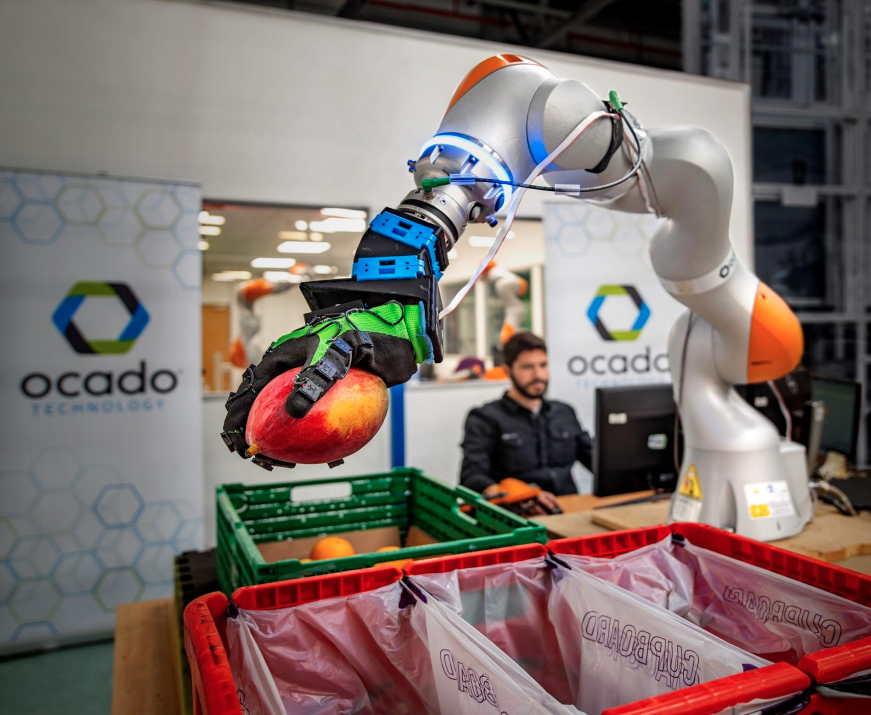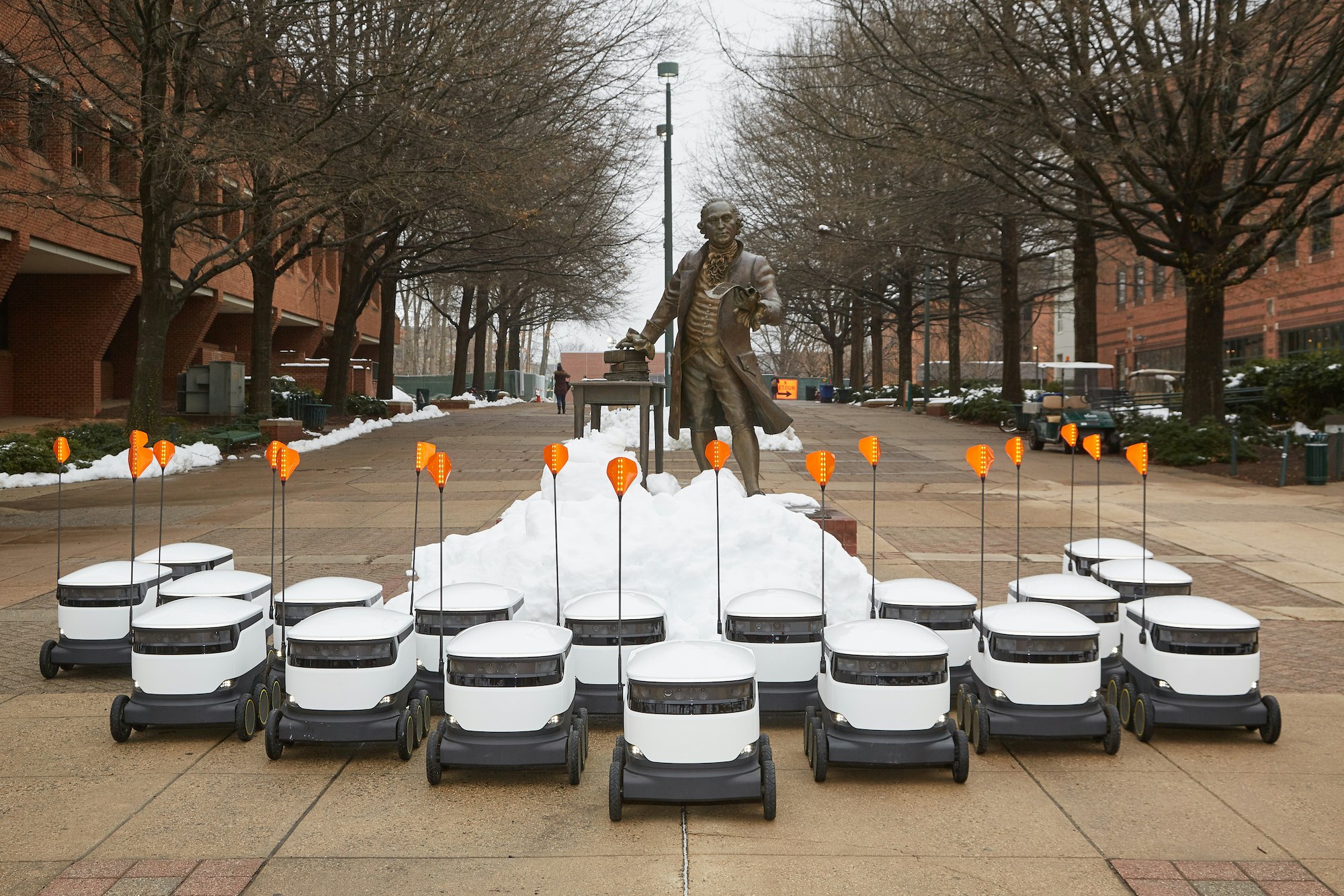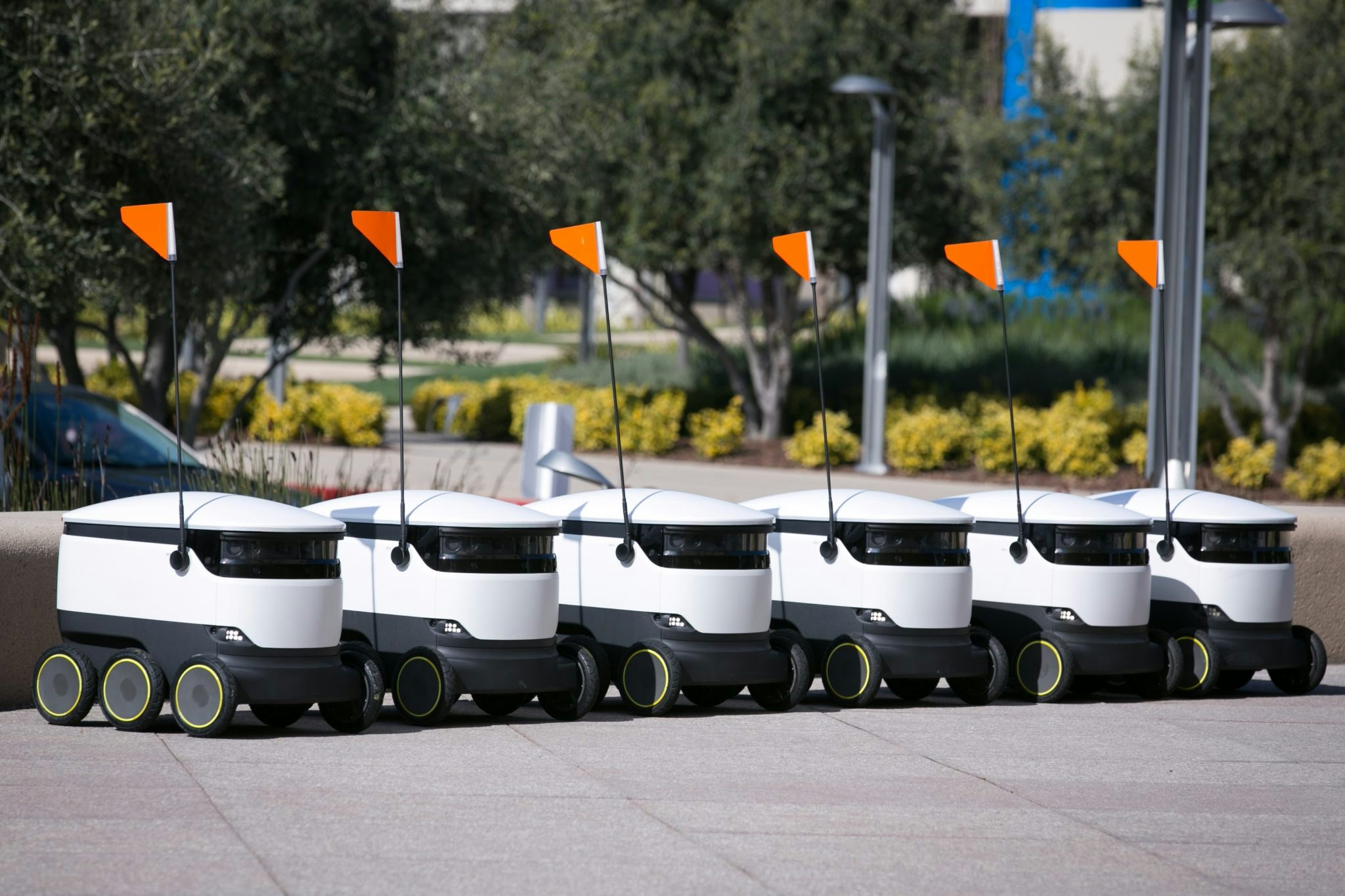Robot-delivered groceries came a step closer to becoming mainstream on Friday as online grocery platform Ocado announced a £10m investment in Oxbotica, the autonomous driving startup. The two companies also announced a commercial partnership to develop a range of autonomous vehicles that will integrate with Ocado’s platform.
Ocado already builds warehouses where a coordinated fleet of robots picks and packs grocery orders, with everything from robots running on rails to robotic gripping arms. Oxbotica’s technology could allow them to add self-driving cars to deliver groceries to the customer’s front door.
Last-mile deliveries and kerb-to-kitchen robots are part of the plan.
"The range of possibilities goes from autonomous robots that can move things around in a warehouse to robots that can take your groceries from the delivery van on the kerb right into your kitchen," says Alex Harvey, Ocado's chief of advanced technology. A grocery-carrying bot could be a boost for elderly or frail people, he said.
Ocado is planning to get the first delivery robot prototypes out in two years, but Harvey acknowledged that the kerb-to-kitchen robot may not be the first to emerge, as this would be very challenging to design.
"It would need to be able to handle stairs, doors and come into your house, missing the cat and navigating around toys on the floor. It would need to be able to handle some human interaction," he said.
It would be left to retail customers to decide which types of autonomous vehicles they wanted to develop.
Although Ocado may build some of the robots themselves, the point about the collaboration with Oxbotica is to create a universal autonomy system that can be applied to anything.
"We want to be the Microsoft Windows of autonomy," said Paul Newman, chief technology officer of Oxbotica.
Oxbotica and Ocado ran a two-week trial of grocery deliveries using self-driving cars back in 2017 in Greenwich, in south London, but now Oxbotica’s technology has developed to the point where they can take this further.
Here's some behind-the-scenes footage from that 2017 trial:
One hurdle for autonomous deliveries is getting permission for the vehicles to drive on roads. But Newman said that autonomous driving trials were likely to be announced for a number of UK cities this summer and that the UK government had, in general, been "astoundingly willing" to test out self-driving cars.
Ocado and Oxbotica wouldn’t be the first to offer a service like this in the UK. Estonian startup Starship has been working with the supermarket group Co-op Food to deliver groceries to customers in Milton Keynes for more than two years. Demand for the service’s “no-contact” deliveries increased during the Covid-19 pandemic, and Co-op recently announced plans to expand the Starship partnership. Starship raised a $17m funding round in January in order to expand to more cities.
Automated delivery robots are also starting to come out in all shapes and sizes. Cleveron, another Estonian delivery automation startup, earlier this week unveiled a self-driving delivery robot the size of a small car, which is able to travel along public roads, not just pavements.
But Ocado’s entry into the robot delivery market will speed up making this a more mainstream service faster.
Ocado has a growing number of deals with large supermarket groups, with US retailer Kroger recently launching its first Ocado-powered fulfilment centre. As supermarket customers have increasingly moved to ordering groceries online during the pandemic, automating warehouses has become a key way for grocers to try to keep logistics costs down.
However, the last mile of delivery is still a significant cost for supermarkets, costing around 10% of sales. There will be an appetite for an automated delivery solution that could cut that.
"Delivery is the single largest cost for supermarkets, and around half of that 10% cost is labour. While there is an upfront capital cost in investing in automation, saving 5% of sales is a very large chunk of the very thin margins of the grocery business," Harvey told Sifted.
Automated deliveries could go well beyond the supermarket and grocery sector, too. Paul Clarke, Ocado’s previous chief technology officer, who left the company last year, told Sifted in an interview that Ocado was not interested in just moving shopping around, but moving anything. The brief was: “Changing the way the world stores, sorts, assembles, moves and sells atoms.”


